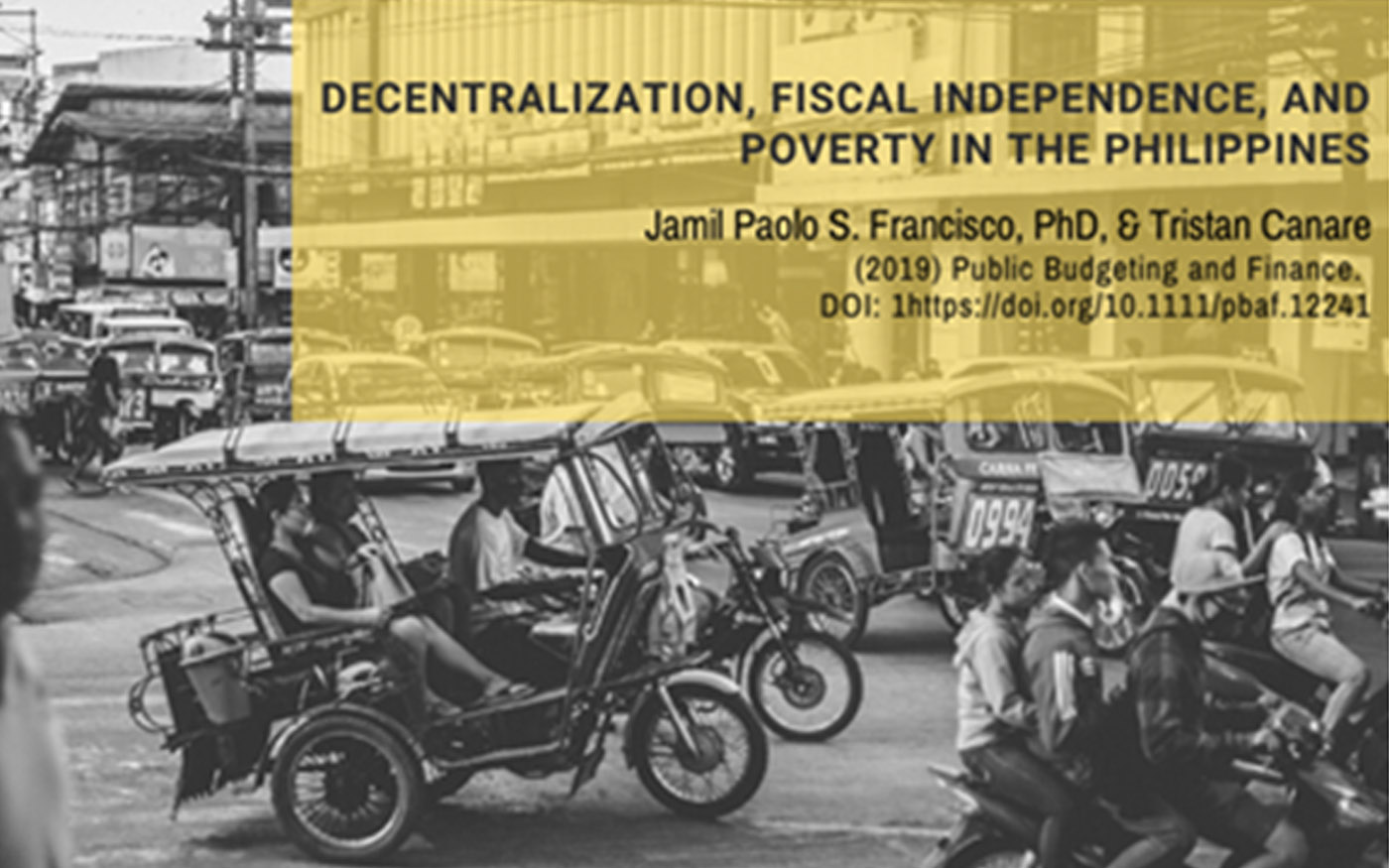EXECUTIVE SUMMARY
Decentralization is a common public sector reform in developing countries. Its basic rationale is that local governments have an informational advantage regarding the needs and preferences of consumers. However, decentralization also has drawbacks. Foremost is the efficiency advantage of the central government in providing public services because of economies of scale and better access to resources. This study looked at the relationship between decentralization and poverty using data from Philippine cities and municipalities. Decentralization was represented by fiscal independence and measured by the share of locally sourced revenues to total local government revenues. Results suggest that fiscal independence is indeed associated with lower poverty. Holding other factors constant, poverty incidence is lower in cities and municipalities that are more fiscally independent or those whose local governments are more able to generate their own revenues, rather than relying on revenue share transfers from the national government.
However, this effect is not linear – the marginal effect of fiscal independence on poverty diminishes as fiscal independence increases. There is an optimal level of decentralization above which further decentralization has adverse effects on poverty reduction. Moreover, decentralization moderates the positive effect of good governance on poverty reduction and the magnitude of the relationship between poverty and decentralization is stronger in poorer municipalities than in richer ones. In addition, it should be noted that this study used only one component of decentralization.
These results can offer policy implications in designing effective decentralization programs. For one, reassignment of expenditure and revenue functions are not enough – local governments should have some fiscal independence for decentralization to be effective. Second, policy‐makers should be careful not to “over‐decentralize,” as too much of it can have adverse development outcomes.
To cite this article: Canare, T. & Francisco, J.P.S. (2019). Decentralization, Fiscal Independence, and Poverty in the Philippines. Public Budgeting and Finance, https://doi.org/10.1111/pbaf.12241
To access this article: https://doi.org/10.1111/pbaf.12241
Publishing Journal
Public Budgeting & Finance serves as a forum for the communication of research and experiences on all facets of government finance and provides meaningful exchange between research from universities, private and nonprofit research institutes, practitioners in public financial markets, government agencies, and the experience of those who practice government budgeting and finance. Researchers, practitioners, and teachers of applied government finance turn to Public Budgeting & Finance to find understandable, reliable, and thoughtful analysis of issues important in the field. The content of the journal spans the spectrum of budget process and policy and financial management, is never limited to one level of government or even to one country, and always even-handedly crosses disciplines and approaches in applied government finance.
by: Prof. Jamil Paolo S. Francisco, PhD and Tristan Canare





